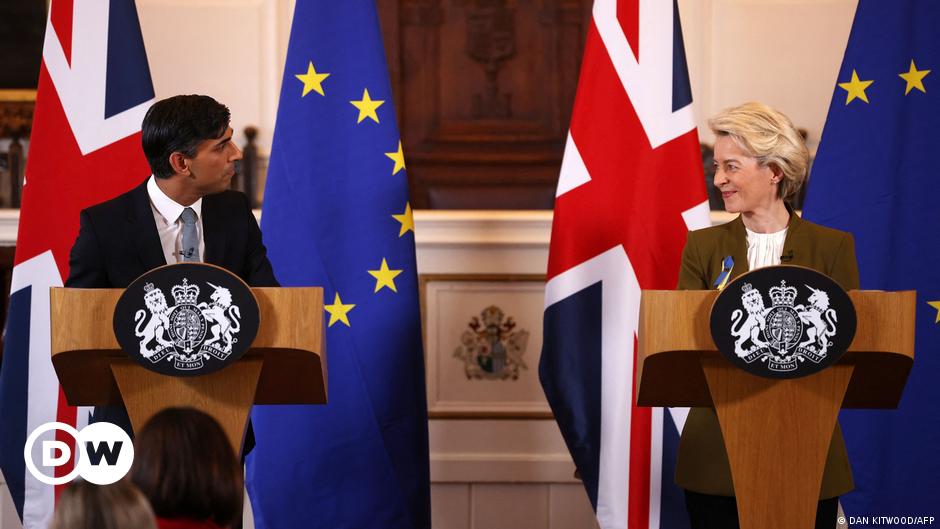The European Commission argues it was Europe’s students and young graduates who were most affected by Brexit’s mobility restrictions. The UK has reportedly responded cooly to the proposal.
The European Union is trying to improve mobility between its 27 member-states and the UK, particularly for people between the ages of 18 and 30. But whether such a proposal would be welcomed by London remains to be seen.
The EU’s executive arm, the European Commission, is trying to open bloc-wide talks with the UK on allowing youth from EU countries to study or work and live in Britain for up to four years, with the same arrangement for British youth.
The proposal would largely revert youth mobility to pre-Brexit times, when members of the then-28-member EU, including Britain, were allowed to work and study without visa requirements. The Commission’s new plan would involve a visa, but one whose fees would not be “excessive.”



The EU has members elect politicians - MEPs (Members of European Parliament). These politicians vote on issues similar to how most other parliaments would. Many issues are agreed upon this way.
MEPs are grouped by political alignment not nationality.
The EU council is the other legislative body in the EU. The EU parliament can send legislation that it doesn’t have the authority to pass itself here for consideration. This type of legislation is still supposed to be developed and debated in parliament. The EU council is a collections of ministers from each member state. These ministers represent their government, not the people (directly at least). This council can approve and amend legislation passed by the parliament. This is where the vetos can happen.
The council is important to maintain the sovereignty of individual nations. Despite what Brexit campaigns say, the EU parliament is and isn’t going to be sovereign. The council enables each sovereign state to stop legislation they don’t want. This often means the EU passes very boring and very agreeable legislation. But it legislation that makes the rules within multiple nations consistent so commerce is easier and less bureaucratic. Once you comply with the EU rules, you’ve complied with all the countries within it.
While this is broadly right for legislation, the question above was about admission of new member states.
Admission of new member states requires unanimity among existing member states. That is because EU membership is based on international treaties. For every member state there is a treaty like this one that regulates their entry into the EU; you can see that it’s a treaty between literally all (existing and new) member states which had to agree to it.